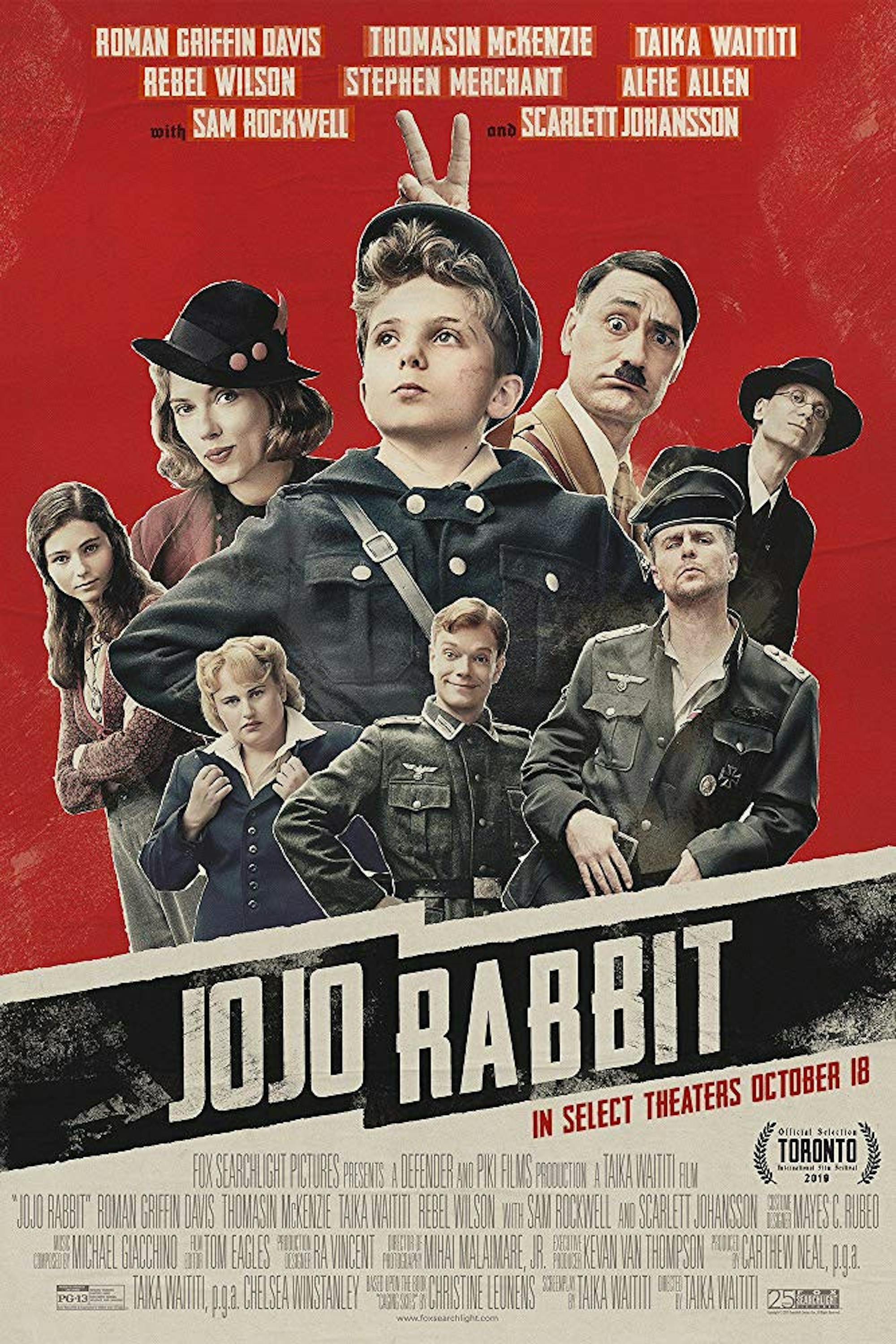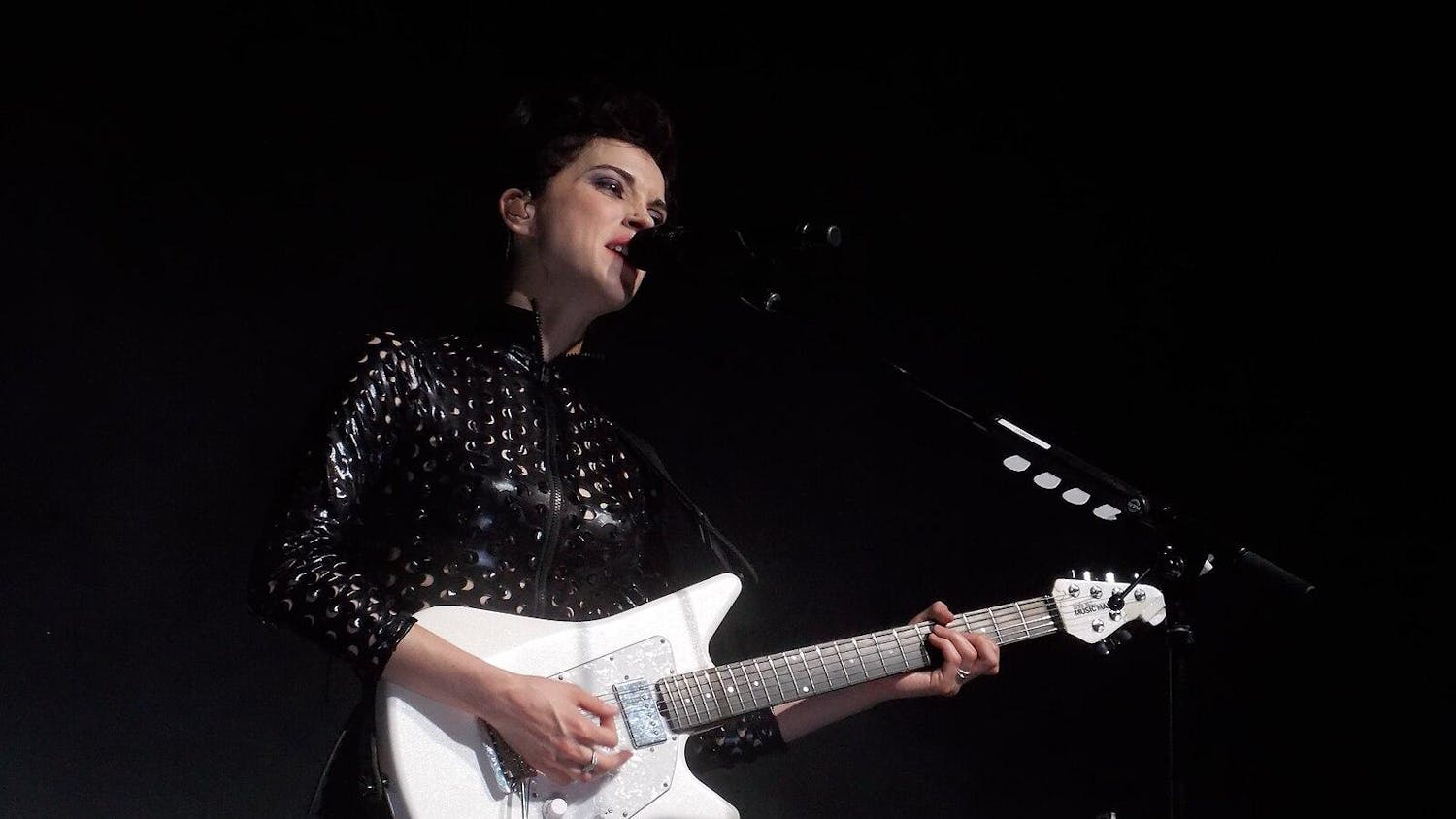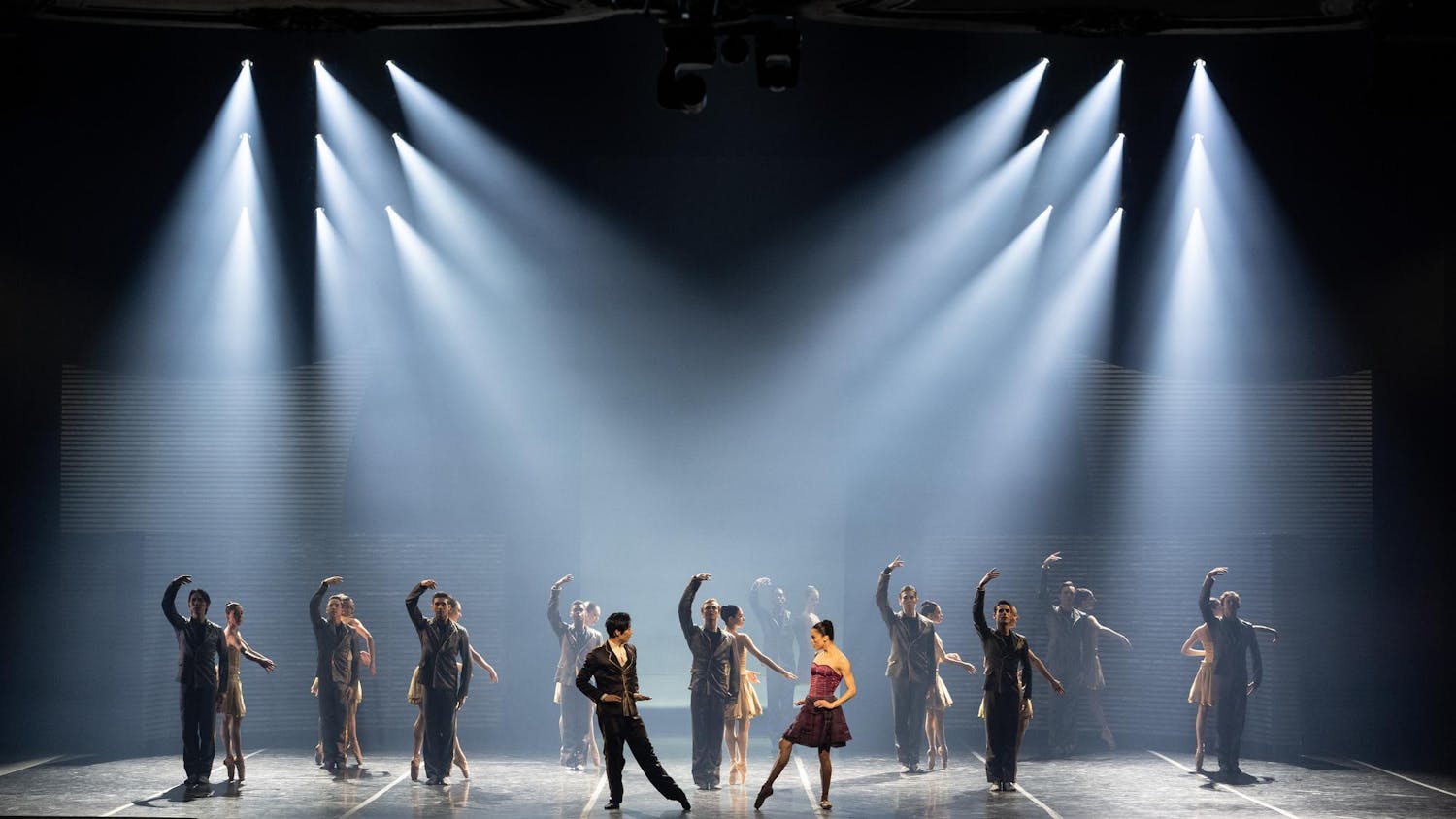While watching “Jojo Rabbit” (2019), the audience is asked to laugh at — and sometimes, along with — the film’s main character, Jojo “Rabbit” Betzler (Roman Griffin Davis). Jojo is a devout Adolf Hitler lover, a child who absolutely adores and idolizes the Nazi Party. His room is full of Nazi propaganda. He attends a Hitler Youth training camp, firm in his beliefs but somewhat squeamish when it comes to being ruthless. His blind dedication to Nazism is what “Jojo Rabbit” makes fun of. It’s easy to see that Taika Waititi, the director, writer and actor playing Hitler in the film, is hopeful that the audience can enjoy the absurdity of Jojo’s viewpoint without getting too uncomfortable. But the problem isn’t discomfort — it’s too much comfort.
“Jojo Rabbit” is, as its satirical nature suggests, existing to both be laughable as well as true. It seeks to expose the stupidity and unfounded logic behind the hatred Jojo has for Jewish people. Waititi spends much of the film focusing on propaganda, and how easily Jojo both buys into it and creates it. In one scene, Jojo questions the Jewish girl, Elsa Korr (Thomasin McKenzie), whom Jojo’s mother, Rosie Betzler (Scarlett Johansson), has hidden in their home, hoping to learn about what he calls her “Jew secrets.” It’s both funny to see Elsa feed him absurdly hilarious lies about Jewish people — Jojo is both terrified and awed when Elsa jokingly tells him that she can read minds — and says a lot about Jojo as a character.
He’s not exactly meant to be a character to sympathize with, but his indoctrination into a belief system as a child is something to be worried about. However, Jojo is eventually grounded and changed by his mother Rosie. If “Jojo Rabbit” has a warm and gooey center, it’s Rosie, in what could be Johansson’s best performance yet. Johansson’s work is both subtle and omnipresent — once she appears in “Jojo Rabbit,” it’s hard to forget her. Rosie’s secret anti-Nazism is both a moral palette cleanser and something that sparks a change in Jojo. It’s rewarding to see him slowly grow closer to Elsa, and the satire along the way is both smart and effective. But Nazism isn’t just portrayed through humor as dangerous — it’s self-destructive.
Jojo’s inability to be a ruthless Nazi is best seen at the Hitler Youth camp, where he’s unable to kill a rabbit and the humiliation earns him his nickname. “Jojo Rabbit” spends much of its time showing that duality in Jojo: his words, fueled by an ideology he actually knows nothing about, aren’t met by his actions. Instead, they’re almost paralleled by them. When the Gestapo enter his home to search it after Rosie spends some time hanging “free Germany” posters, Jojo is visibly stressed at their presence and the possible discovery of Elsa hiding in the house. While Jojo verbally rejects his mother’s positivity that the war will end and Germany will return to what is once was, he is comforted by her presence. The audience doesn’t spend much time with Rosie, but the time spent brings both a sense of optimism that Jojo hasn’t really bought into Nazism and a moral compass.
That morality comes as a sobering gut punch at one point in “Jojo Rabbit,” when it becomes crystal clear how easy Waititi can weave satire and darkness. Sure, the film is first and foremost a comedy, but it’s also a secret vessel for some touching moments. It’s easy to think that the funniest moments would come from Waititi’s Hitler, who is both the most absurd character in the film and the most boring. Even Hitler’s jokes fall flat at some points, especially as he and Jojo begin to disagree. Jojo’s friend Yorki (Archie Yates) is consistently hilarious, and Captain Klenzendorf (Sam Rockwell) is the very embodiment of the film’s secretly tender underbelly.
But there are times when “Jojo Rabbit” feels too safe, like it’s just nearly pushing the envelope. It creates a cast of characters but leaves them with nowhere to go beyond Rosie. Jojo might be a quasi-protagonist, but there’s a feeling throughout the film that Jojo’s plot isn’t nearly as complex as it could be — in other words, the film doesn’t deal with the full weight of all of the issues it brings up. Jojo’s love for Elsa, sparked by Rosie’s goodness, is what seemingly changes him — but it’s hardly a redemption arc, and if it’s supposed to be, it doesn’t feel earned. “Jojo Rabbit” thinks it’s doing more for Jojo than it actually is.
In its funniest moments though, the film shines as a good satire. But when “Jojo Rabbit” takes this humor too far — when the film thinks it’s much funnier than it is — there’s less to look forward to. Sure, the sudden moments of darkness feel deserved, and Waititi does an excellent job making the tone feel fluid. But it eventually becomes difficult to follow the absurdity because it doesn’t feel absurd enough. There’s much more to satirize about Jojo, but something along the way holds “Jojo Rabbit” back.
'Jojo Rabbit' is effective satire, but feels too safe

A promotional poster for 'Jojo Rabbit' (2019) is pictured.
Summary
While poking fun at Nazis, "Jojo Rabbit" is also focused on its moral compass. But the film could certainly push itself more than it does.
3.5 Stars





